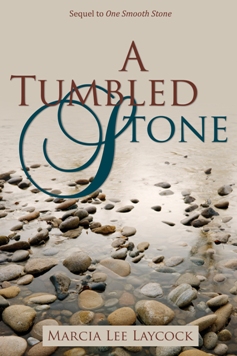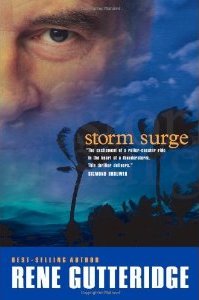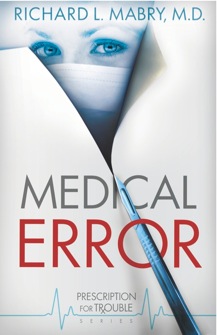 Paula Vince is a wife and homeschooling mother of three children, who lives in South Australia’s Adelaide Hills. She has always loved writing fiction as she believes a well-written story has the power to stir hearts like nothing else.
Paula Vince is a wife and homeschooling mother of three children, who lives in South Australia’s Adelaide Hills. She has always loved writing fiction as she believes a well-written story has the power to stir hearts like nothing else.
Paula’s most recent novel, Best Forgotten, won the Grand Prize in the 2011 CALEB Awards. The CALEBs are awarded annually to showcase the pre-eminent works of Christian literature (fiction, memoir, general non-fiction, devotional and poetry) written by authors of Australia, New Zealand and the South Pacific.
Janet: Welcome, Paula, and thanks for taking time to join us. Congratulations on the CALEB! Tell us a bit about Best Forgotten.
Paula: It’s about a young accident victim who wakes up in hospital without a clue who he is. Not only does he have nothing in common with his family but he develops a strong aversion to the person he used to be. The more he learns about himself, the more puzzled and upset he becomes. He finds out that his best friend has disappeared without a trace on the night of his own accident and he can’t shake off a hunch that he might have been involved. The more he tries to investigate, the more likely it appears that he was part of something really shady and sinister. He’s torn between wanting to find out and being afraid that he’ll have to face horrible consequences when he does.
He’s both hero and detective of his own story and terrified that he may also turn out to be the villain. And readers who enjoy a bit of romance won’t be disappointed.
Janet: Definitely sounds like a puzzle! Where did the story idea come from?
Paula: I’ve been fascinated by the relationship between our thinking patterns and what we make of our lives. Do our seemingly random choices have the impact to come back when we least expect them to and impact the rest of our lives? I’ve had this amnesia story swirling around in my mind for years while I’ve worked on other projects. One day, the plot seemed to take shape really quickly and I couldn’t wait to get started on it.
Janet: Another of your novels, Picking up the Pieces, was the winner of the religious fiction category of the 2011 International Book Awards. I guess this was a banner year for you! Would you like to tell us a bit about that book too?
Paula: Just before I started writing it, I’d been reading books with extremely nasty villains, which started me wondering what deeply rooted unhappiness would inspire a person to commit a serious crime. It seemed tragic that already troubled people had to bear a load of guilt and censure on top of whatever they’d done. I longed for a different story in which the hero/criminal is treated with the same sensitivity and compassion as his victim, so I decided to write one.
My main protagonist is a sensitive and introverted young man who commits a crime entirely out of character for him in a moment of extreme emotional stress. The story is about how each of the two main characters, he and the girl, deal with the aftermath and there’s a wonderful surprise at the end. I wanted Picking up the Pieces to be a book to turn stereotypes on their heads.
Janet: What are you working on now?
Paula: Another contemporary drama with a thread of mystery. Its working title is Along for the Ride. I’m tackling the questions of divine healing and whether God works independently or in response to our faith. The two main characters have been brought up in strong Christian households but realize that their concepts of God have always been far more limited than they’d care to admit.
Janet: You’re a deep-thinking writer! Of the seven novels you’ve written so far, do you have a favourite character or story?
Paula: So far, I have three favourites. I have a soft spot for Picking up the Pieces and Best Forgotten because I got so excited by the issues I tackled.
My other favourite is called The Castle of Light, the middle book in a fantasy/adventure trilogy. The central character was a ‘baddie’ in the first book but I decided that I understood and liked him. The second book in the trilogy was my attempt to convince readers who’d started the story hating him finish up understanding and cheering for him too.
Janet: That sounds like quite the challenge, but I’m guessing it worked fine where you’re pleased with the result. Speaking of challenges… homeschooling and writing…. Tell us what a typical day looks like.
Paula: I like to get up before the kids and use that creative time straight after sleep to work on my books. Only then can I work in total silence. Once the family is awake, housework, lessons and ‘Mum’s taxi-service’ takes over.
I’ve never written a novel in a household where there isn’t at least one little baby. At the moment I have a 16-year-old son, 13-year-old daughter and 7-year-old son. I believe making time to pursue your own projects is very important for homeschooling parents.
Janet: Yes, it’s important for parental sanity and as an example to the children. What got you started writing?
Paula: I’ve been an avid reader since I was very small. I always hated coming to the end of a great story because I wanted to know even more about the characters I’d come to love. I used to imagine my own future stories for them until I probably had enough ideas to fill several more books. One day, when teachers were asking us what we’d like to do when we left school, it dawned on me that I’d love to write fiction. If I had characters of my own to imagine plots for, I could stay with them for as long as I pleased and craft their stories to suit myself.
Janet: What’s one key thing do you want readers of Best Forgotten to take away when they’re done?
Paula: To think about what you think about every day. If you battle with despondency and depression, it may be worth examining the thoughts and attitudes that replay themselves over and over through your mind. My hero figures out that he was actually happier in a way when he had amnesia because he didn’t have his usual destructive thoughts to deal with. When his memory returns, he realises that he’s in a good position to start fresh and actively choose to accept or reject what he finds filling his head.
Janet: What’s it like when someone tells you they’ve changed because they connected with some aspect of your novels?
Paula: I appreciate it more than I can say. As I know many people making an active difference in the world, such as pastors, doctors, missionaries and teachers, it’s easy as a writer to wonder if I’m also making a difference in my own quiet way. When people take the time to tell me that my stories have blessed them and helped them to make positive changes, it’s awesome.
I’ve appreciated and taken on board many ideas from fellow authors over the years and love to think I can return the favour.
Janet: Is there a particular song or Scripture verse that’s made a big difference for you?
Paula: I love Romans 8:28. “We know that all thing work together for good to those who love God and are called according to His purpose.” This verse features strongly in Best Forgotten too.
Janet: What do you like best about the writing life?
Paula: I love playing around with different word combinations until they express exactly what I’m trying to say. I love the feeling that the characters are my friends and when readers tell me that they feel like their friends too, that makes my day.
Janet: What do you like least?
Paula: I’m not a natural salesperson, so trying to promote and market my books has caused me headaches over the years. The financial strain has been problematic too. My husband is currently a full-time student and bringing up three children on what we earn has caused us plenty of stress.
Janet: What do your family think of your writing?
Paula: They say, “It’s good!” They are a family of few words. Seriously, I think they are proud. My husband and eldest son have been counted among my editors and I’ve taken advice of theirs on board. My daughter has enjoyed some of my books too and even my youngest son catches the enthusiasm when I’m working on something.
Janet: Writers are told to read widely and voraciously. I think that’s one of the perks of the deal. What are you reading these days?
Paula: I love to read other works of Christian fiction. Contemporary, historical, fantasy, it’s all great. Strengthening peoples’ faith through the medium of stories is very rewarding, whether I’m writing or reading. Recently I’ve been reading new novels written by other Australians. This is particularly exciting because until recently, we haven’t had many Christian fiction authors. North America has held a bit of a monopoly on the genre and it’s wonderful to see Aussies joining the ranks. I feel like a pioneer and I’m looking forward to seeing what the future holds for Aussie fiction.
Janet: With Amazon and with the variety of e-book formats available, it’s great that readers from around the world can read works from other parts of the world. What are you listening to these days?
Paula: I admit that I enjoy listening to pop rock and love ballads from the 60s, 70s, 80s and 90s.
Janet: What do you like to do to get away from it all?
Paula: I enjoy bushwalking, hiking and long country drives. Each day I try to fit in a walk around my own district. I find taking a night drive with good music playing is a wonderful way of getting ideas flowing. Family outings and holidays are always enjoyable too.
Janet: Tell us some of the things you love most about living in Australia.
Paula: I love our warm climate and vast space. I love our unique flora and fauna and breathtaking coasts. I love the particular style of humour and candour of Australians. Many Aussies, like me, can claim to be descended from strong and admirable people of faith who lived rugged, gruelling lives. I love to think I have their blood flowing in my veins.
Janet: It looks like you’re part of a vibrant network of Christian writers. How has being part of Omega Writers benefited you? And are you involved with other writers’ groups?
Paula: Omega Writers and Christian Writers Downunder, my two favourite groups, are great at offering support and keeping each other in touch with opportunities and competitions as well as what we’re all doing. I’m also beginning to look into joining some international writing support groups too.
Janet: It’s great that with email we’re not limited to the few writers we may know within driving distance. What would you say to a beginning writer?
Paula: Firstly, write the sort of material you love to read yourself. Stay true to your own voice and don’t be concerned about fitting yourself into some niche or conforming to what you believe ‘the market’ is looking for.
Secondly, make sure you begin with the expectation that you’ll have to go over your material and re-write several times. Train yourself to enjoy the many polishing and editing stages as much as you enjoy the initial creative rush.
Above all, enjoy every moment. Let it always remain a great privilege and pleasure rather than a chore.
Janet: Words of wisdom! Thanks so much for taking time to let us get to know you a bit, Paula. May the LORD continue to bless you and make you a blessing to others—in every area of your life.
===

A young accident victim wakes up in hospital and can’t remember who he is. Why does he have nothing in common with his family? Why does he despise the person he was supposed to be? Why has his best friend disappeared without a trace? And is somebody after him?
His family can offer no solutions. His girlfriend is strangely aloof. And he cannot shake off a feeling that the answers will prove more foreboding than his amnesia. Yet he must find out before he runs out of time. Paula Vince has woven elements of secrecy and suspense with her trademark warmth and compassion to bring you a new, fascinating story.
Best Forgotten is the CALEB Award fiction winner for 2011
You can find Paula Vince at Apple Leaf Books, and all of her books are available to order through the Apple Leaf store. Her books are also available through Amazon.ca, Amazon.com, and Amazon UK, as well as through the Kindle ebook store.
Paula also blogs at It Just Occurred to Me… and The Vince Review.















